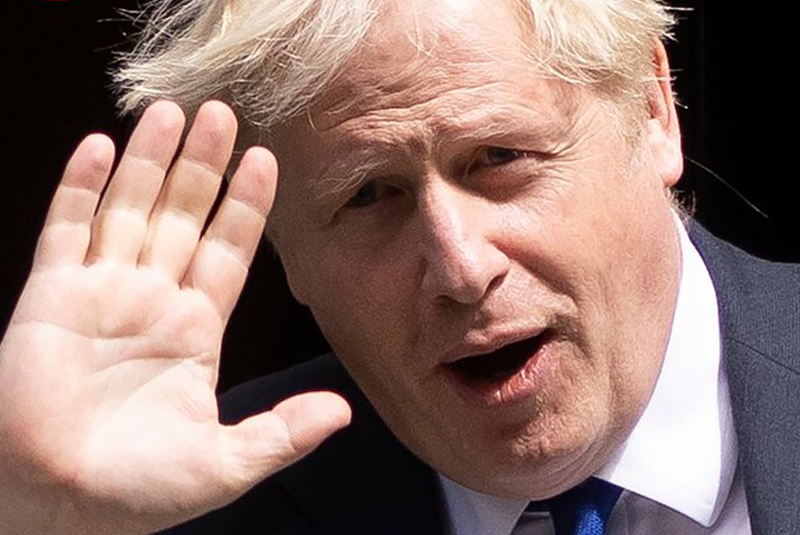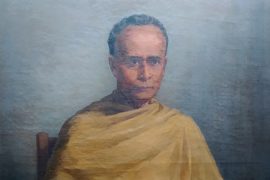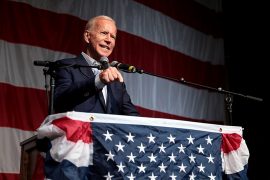Most prime ministers would have resigned over any one of the scandals to engulf Boris Johnson’s government. Johnson, never one for tradition or rules, rode out nearly every crisis – but the Chris Pincher affair was the final straw. Led by Health Secretary Sajid Javid and Chancellor Rishi Sunak, over 50 members of Johnson’s government resigned in a day and a half. Johnson has now resigned as party leader, vowing to remain PM until a new leader is chosen.
Johnson was not a typical leader, and his successor will have a difficult job. They will need to strengthen the Conservative party before the next general election (which could come sooner rather than later). They will need to distance themselves from the more problematic aspects of Johnson’s legacy, while steadying the ship and appealing to the electorate. Here are the likely runners and riders for this seemingly impossible task:
Ben Wallace
While not perhaps as well known as some of the candidates, Defence Secretary Ben Wallace is considered a serious contender. He has been pivotal in the UK’s response to Russia’s invasion of Ukraine and was clear in the run-up to the Taliban takeover in Afghanistan that action was needed to evacuate UK citizens and others in danger. He did not resign from Johnson’s cabinet, which might count against him, but he certainly looks like a strong candidate. Early polling suggests Wallace is the candidate to beat, but the campaign will test his early popularity.
Penny Mordaunt
Minister of State for Trade Policy Penny Mordaunt is not necessarily a household name, but she is very respected within the Conservative party. Mordaunt was a short-lived but well-respected defence minister and recently Royal Navy reservist. She previously served as secretary of state for international development (before the department was merged with the Foreign Office). Like Wallace, Mordaunt stuck by Johnson over the last few days, but her popularity within the party might allow her to overcome that issue, particularly if she can play up her pro-Brexit credentials.
Rishi Sunak
The former chancellor was considered the leader in waiting in the early stages of the pandemic. His early successes with the furlough scheme elevated his status and profile, but his star faded fairly quickly. Questions over his wife’s tax status and wealth generally made Sunak seem out of touch with voters. He was also, along with Johnson, fined by police over lockdown parties in Downing Street. While he remains a strong candidate, he might have wished that his opportunity to stand for leader had come sooner.
Sajid Javid
Javid has the distinction of having resigned from a Johnson cabinet twice. His first resignation, from his role as chancellor just before the pandemic, was driven by his desire to appoint his own staff. He was invited back into cabinet after Matt Hancock’s resignation. While considered by many within the party as a very capable MP, with a working-class background that would count in his favour, some worry Javid showed a lack of judgment in rejoining the Johnson cabinet.
Nadhim Zahawi
Zahawi came to public prominence when he spearheaded the vaccine rollout. His time as education secretary has been viewed positively, but his move to the Treasury less than two days before telling Johnson to resign have made some question his motives. Perception that he allowed personal ambition to override his moral compass is likely to hurt Zahawi. He will need to answer for this when asked by the party and country.
Liz Truss
Currently overseas on official business, the foreign secretary will undoubtedly be thankful not to have been caught up in the chaos of this week. But is she too absent? While considered by many a “safe pair of hands” she is not a dynamic candidate for leader, and it is doubtful whether she can become an electoral asset to the party. If the Conservatives want a safe choice instead of another “exciting” leader to follow Johnson, Truss may have a shot.
Dominic Raab
The deputy prime minister is another potential leader in waiting. He has occupied a number of cabinet roles including secretary of state for Brexit, foreign secretary and now justice minister. While he certainly has a high-ranking position, he has had a number of missteps. As Brexit minister, he finished off the negotiations his predecessor David Davis began, then resigned because he couldn’t accept the deal he helped to finalise. As foreign secretary, he was criticised for his lack of speed during the Taliban takeover of Afghanistan. That, coupled with his earlier comments calling British workers the “worst idlers in the world” before he joined the cabinet, make him a long shot for Downing Street.
The rest of the pack
On the backbenches, there are expected to be at least three potential candidates – former Health Secretary Jeremy Hunt, prominent Brexiteer Steve Baker, and well-respected backbench MP Tom Tugendhat. For any backbencher wanting to catapult themselves into Downing Street, the ride is likely to be bumpy. A track record of success is usually needed. This is harder for a backbencher, either because they have never been in cabinet, or because they have left cabinet (usually after being asked to). These individuals have a long road ahead of them.
There will be others who may want to scope out their prospects with the party. Cabinet secretaries Priti Patel or even Jacob Rees-Mogg might test the water, but they are likely to find it cold.
The battle ahead will inevitably have its twists and turns, and it is almost impossible to predict the outcome. Many within the Conservative party, and perhaps the country, will be hoping for less exciting times than they have recently lived through.
This story first appeared in The Conversation
-30-
Copyright©Madras Courier, All Rights Reserved. You may share using our article tools. Please don't cut articles from madrascourier.com and redistribute by email, post to the web, mobile phone or social media.Please send in your feed back and comments to [email protected]











